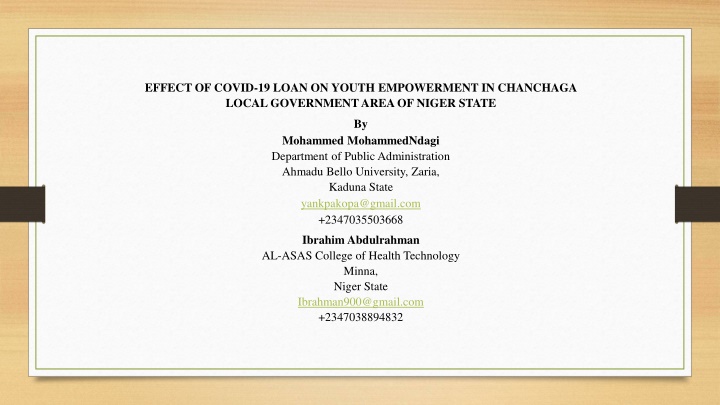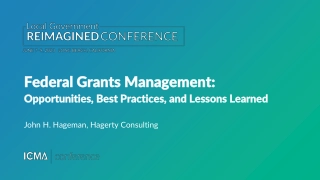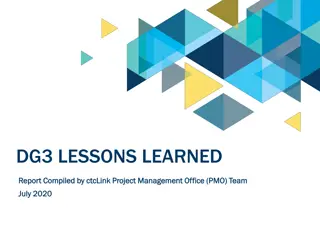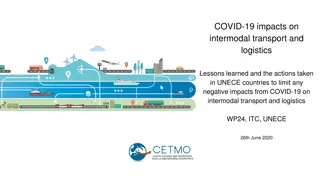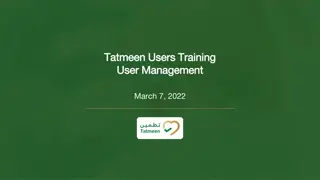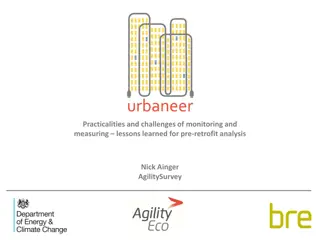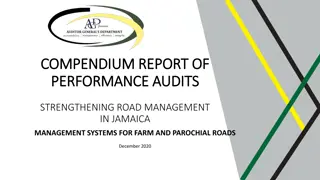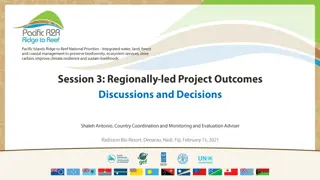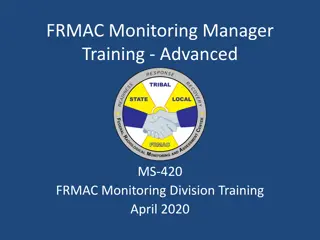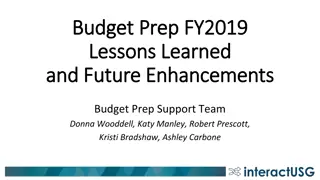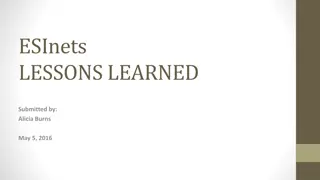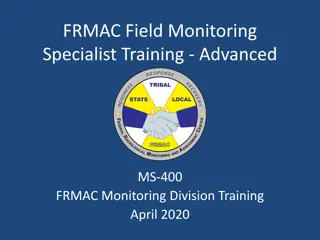Lessons Learned in Training Safe Users of Confidential Data
This presentation by Professor Felix Ritchie covers the importance of training users of confidential data, highlighting the need for legal framework education, clear rules, and awareness of consequences to prevent misuse. It also discusses aspects of human psychology and ideal training methods for data access.
Download Presentation

Please find below an Image/Link to download the presentation.
The content on the website is provided AS IS for your information and personal use only. It may not be sold, licensed, or shared on other websites without obtaining consent from the author.If you encounter any issues during the download, it is possible that the publisher has removed the file from their server.
You are allowed to download the files provided on this website for personal or commercial use, subject to the condition that they are used lawfully. All files are the property of their respective owners.
The content on the website is provided AS IS for your information and personal use only. It may not be sold, licensed, or shared on other websites without obtaining consent from the author.
E N D
Presentation Transcript
EFFECT OF COVID-19 LOAN ON YOUTH EMPOWERMENT IN CHANCHAGA LOCAL GOVERNMENT AREA OF NIGER STATE By Mohammed MohammedNdagi Department of Public Administration Ahmadu Bello University, Zaria, Kaduna State yankpakopa@gmail.com +2347035503668 Ibrahim Abdulrahman AL-ASAS College of Health Technology Minna, Niger State Ibrahman900@gmail.com +2347038894832
Introduction COVID-19 pandemic is a significant global crisis that requires individuals, organizations and nations effort to take necessary steps to curb and develop a comprehensive and systematic understanding of the effect of COVID-19 on every individual directly or indirectly affected by the pandemic. In most African countries, the pandemic's threats were not taken seriously early enough, so the response was weak. While other continents were seriously battling with the pandemic, most African countries still went about daily socio-political and economic routines. The covid 19 was announced in Nigeria in February 2020 most people ignored the disease. However, the menace was reported to have originated in the village of Wuhan in China in 2019 with alarming death rates. The index case reported in Nigeria was an Italian who visited Nigeria in February 2020.
The first case of COVID-19 patient in Niger State, Nigeria, was announced by the Nigeria Centre for Disease Control (NCDC) on 10th April 2020. Since then, many cases have been confirmed in the state, and more cases were still reported. The number of cases in Niger State as of 30th April 2021 stands at 930, with 17 deaths and 913 recoveries. Youth empowerment has been recognised as a catalyst for achieving pro-poor growth among Developing Countries. This led Sacerdoti (2005) to argue that faster economic growth would not be possible without the depending on the financial system and, in particular, more support from the banking system. He further showed a strong association between access to bank credit and the overall economic development of a country. Access to finance can help poor youth to increase their income, build a viable businesses, and reduce their vulnerability to external shocks. Bashir, 2008 asserted that It can also be a powerful instrument for self-empowerment by enabling the poor, especially the youth, to become economic agents of change. Following the increase in the rate of poverty and unemployment due to COVID-19 in the country, the Federal Government of Nigeria established the Household loan in 2020 to tackle poverty, unemployment and hunger across the country.
The capacity of the poor would be significantly enhanced through the provision of financial services, especially credit, to enable them engage in economic activities and be more self-reliant, increase employment opportunities, and enhance household income, thereby leading to youth empowerment.
LITERATURE REVIEW AND THEORITICAL FRAMEWORK Several concepts where reviewed, this concepts include: Concept of covid 19 Concept of loan Concept of youth empowerment
RESEARCH METHODOLOGY Mixed methods and adopted concurrent embedded research design: is an approach to inquiry that combines or associates both qualitative and quantitative data in order to provide a comprehensive analysis of the research problem. Research Design Population of the Study The population of this study consist of all the people that benefited from the Covid 19 loan in Chanchaga local government of Niger state. Sample Size & Technique 113 via Krejcie and Morgan sample size determination table, (1970). Snowball sampling technique was used for quantitative and thematic analysis for qualitative Sources of Data Collection Primary: Questionnaire and interview. Secondary Source: Official Publications Methods of Data Analysis Quantitatively, Both descriptive and inferential statistical tools were used Qualitatively, The interview responses were analyzed using thematic method of analysis.
Data Analysis Decision Rule The null hypothesis should be rejected if the P value is less than 0.05% level of significance and where the P value is greater than 5% level of significance, the null hypothesis should not be rejected. Test of hypothesis To test for the hypothesis formulated in this research, simple linear regression was used to find out the Effect of covid-19 loan on youth empowerment in Chanchaga local government area of Niger State using Statistical Package for Social Sciences (SPSS) and the findings are presented in the slide below:
Summary of Findings The test of hypothesis shows that covid 19 loan has no significant effect on youth empowerment. However, the results of the analysis indicated a strong negative relationship between covid 19 loan and youth empowerment. The findings from interview also corroborate with the questionnaire results as the respondent indicate that most of the beneficiaries had used the loan for other purposes other than what it is main for. 5.1 Conclusion and Recommendation In view of the data presented and analyzed as well as the hypothesis tested, the study concludes that the aim of giving out the load which is to ease the burden that the pandemic of covid 19 brought about was not defeated as most of the beneficiaries are not business oriented thus used the loan otherwise. Despite the negativity of the effect of the loan on youth empowerment, there are still a few that were able to utilize the loan obtained from the government. It was recommended that financial institutions should approve the loan to the right complete business owner with a certificate of incorporation. This will help sustain the scheme's objective of empowering youths.
THANK YOU ALL FOR LISTENING
